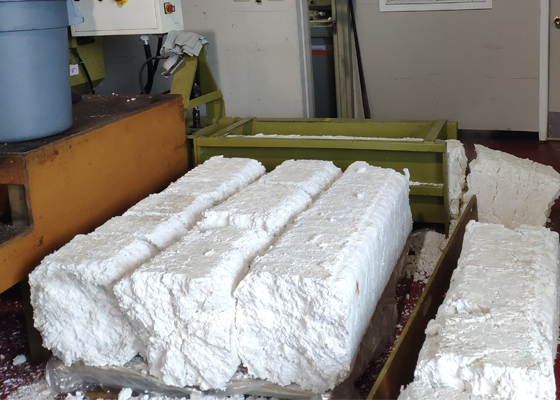Is Australia’s EPS “phase-out” a good decision? It has been widely reported recently that the Australian government aims to phase out “problematic and unnecessary single-use plastic materials” from food and beverage containers by 2022 as part of its national plastics program. One of the main materials identified is EPS, and while this announcement is specific to mainland Australia, it will clearly not be welcomed by EPS recyclers around the world. There is still a widespread and erroneous belief that EPS cannot be recycled.
Wrong beliefs lead to many EPS being discarded directly in landfills, unaware that it is actually valuable material that is being discarded. EPS recycling machine can turn EPS into high-density blocks, saving storage space and reducing transportation costs. There are many recycling machines for EPS on the market, mainly divided into EPS compactor and EPS melting machine. Compared to the latter, the former mainly adopts a physical technology to crush and compress EPS, without any burden on the environment.
EPS bans are popping up all over the place, and there are many people pursuing the emergence of complete alternatives to EPS. However, we can not deny that EPS is a material that can not be completely replaced. The convenience and low cost that it brings to us is so beneficial that it cannot be matched by any other material.
When we change our misconception that EPS is not recyclable, white pollution is then reduced. We should take the right approach to recycling and seek professional EPS recycling machine to deal with these waste EPS. Fortunately, EPS recycling machine can even promote Australia’s recently popular circular economy. For example, these EPS blocks can become the raw material for plastic pellets, which can then be turned into end products in the market. So, we should have our answer to the question posed at the beginning of the article.

